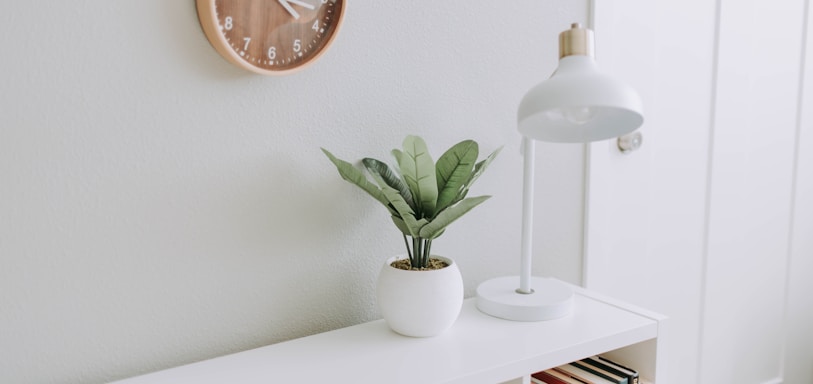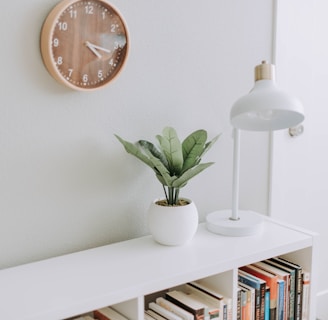Minimalism and Simplicity: A Perfect Match
Many individuals are looking to minimalism as a way to find peace and quiet in a world full with distractions and excess. Minimalism is more than just reducing one's material possessions; it's an ideology that stresses the value of simplicity. The combination of minimalism and simplicity creates a powerful synergy that can help one live with greater focus and optimism. In this piece, we'll look at how minimalism and simplicity go hand in hand, making for a winning combination for anyone trying to live a happier, more meaningful life.


In a world characterized by excess and constant busyness, many people are turning to minimalism as a path to simplicity and contentment. Minimalism is not just about owning fewer things; it's a mindset that promotes the idea that less is more. When minimalism meets simplicity, a powerful synergy is born, leading to a more purposeful and positive way of life. In this article, we'll explore how minimalism and simplicity complement each other, creating a perfect match for those seeking a more fulfilling existence.
Minimalism Defined
Minimalism is often associated with decluttering and having fewer possessions, but it's much more than that. It's a conscious choice to simplify life by focusing on what truly matters. Minimalism encourages individuals to:
Evaluate Possessions: Assess belongings to determine their value and necessity in your life. Let go of items that no longer serve a purpose.
Prioritize Experiences: Shift focus from accumulating material possessions to accumulating meaningful experiences and connections.
Embrace Intentionality: Live with intention and align your actions with your core values and goals.
Create Space: Remove physical and mental clutter to make space for what truly matters.
Simplicity: The Ultimate Goal
While minimalism is a means to simplify life, simplicity is the ultimate goal. Simplicity is a way of life that emphasizes clarity, purpose, and well-being. When minimalism and simplicity are combined, the result is a more balanced, peaceful, and fulfilling existence.
The Connection Between Minimalism and Simplicity
Less Clutter, More Space: Minimalism encourages you to declutter your physical space by eliminating unnecessary possessions. This process naturally leads to simplicity as you create more physical space and mental clarity. A clutter-free environment helps you focus on what's important and reduces stress.
Focus on Essentials: Both minimalism and simplicity emphasize the importance of focusing on life's essentials. By reducing the distractions of excess possessions and commitments, you can concentrate on what truly matters to you.
Quality Over Quantity: Minimalism promotes the idea of owning high-quality, essential items rather than a multitude of low-quality possessions. This principle aligns with simplicity's focus on quality experiences over quantity.
Mindful Consumption: Both concepts encourage thoughtful and intentional consumption. Minimalism discourages impulse buying and encourages asking questions like, "Do I really need this?" Simplicity reinforces this by encouraging mindful choices and reducing waste.
The Benefits of Combining Minimalism and Simplicity
The fusion of minimalism and simplicity yields a range of benefits that can have a positive impact on your life:
Reduced Stress: With fewer distractions and less clutter, you'll experience reduced stress and a greater sense of calm.
Increased Focus: By eliminating unnecessary possessions and commitments, you can concentrate on your goals and what truly matters to you.
Enhanced Well-being: Both minimalism and simplicity promote a focus on meaningful experiences and connections, leading to increased well-being and happiness.
Financial Freedom: By curbing consumerism and practicing mindful spending, you can save money, reduce debt, and enjoy financial freedom.
Environmental Impact: Minimalism and simplicity can reduce waste and have a positive environmental impact by encouraging sustainable living.
Incorporating Minimalism and Simplicity into Your Life
To embrace minimalism and simplicity:
Start Small: Begin with decluttering your physical space, one area at a time. Ask yourself if each possession adds value to your life.
Prioritize Experiences: Focus on creating memories and experiences over accumulating possessions.
Set Clear Goals: Define your core values and life goals to help you make intentional choices.
Mindful Consumption: Be deliberate in your spending and think twice before making purchases.
Learn to Say No: Simplify your commitments by setting boundaries and saying no to activities that don't align with your values.
In conclusion, minimalism and simplicity are a perfect match for those seeking a more purposeful and positive way of life. By decluttering your physical space, focusing on essentials, and embracing mindful consumption, you can simplify your life and create space for what truly matters. The result is a more balanced, peaceful, and fulfilling existence that positively impacts your overall well-being. Choose the path of minimalism and simplicity, and discover the art of living with less but enjoying more.
